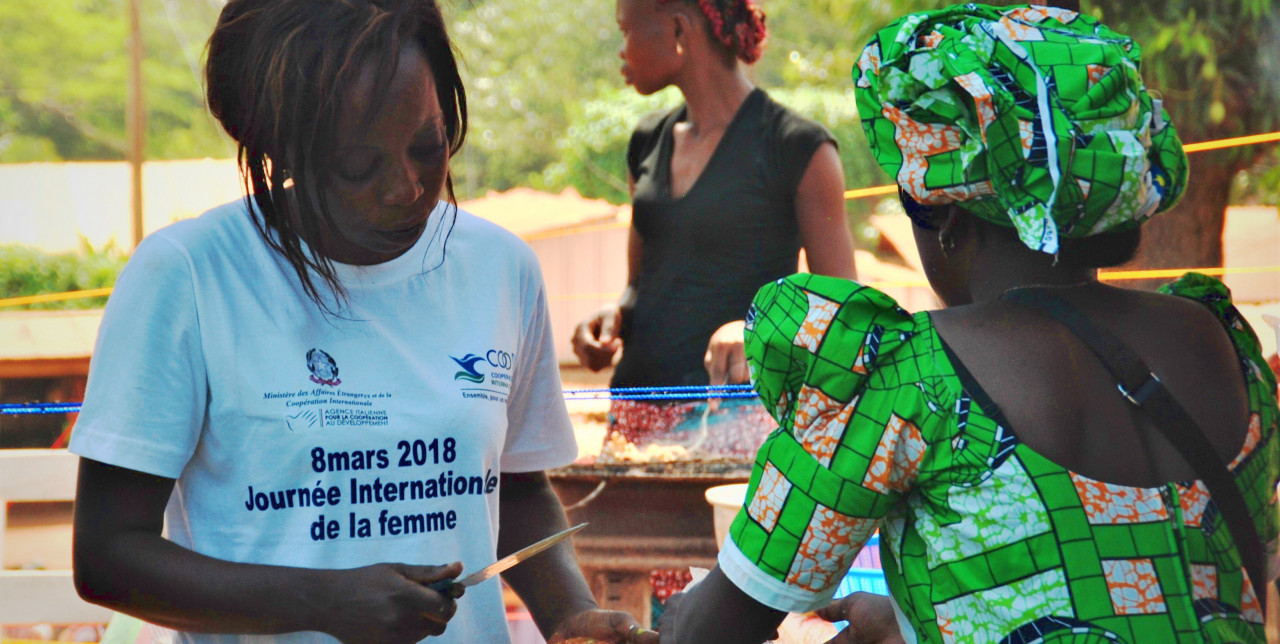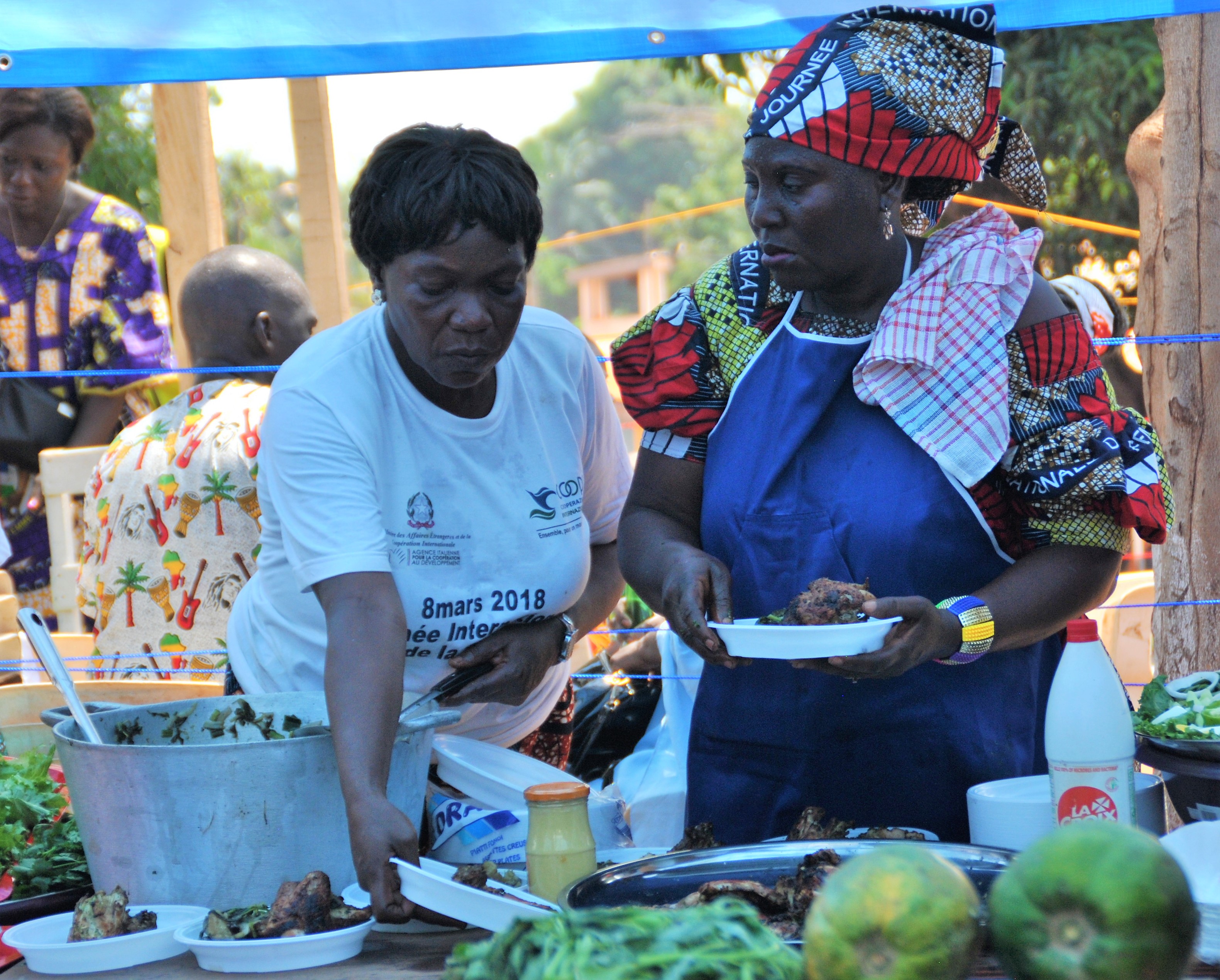13-03-2018 | di COOPI
Women guarantee food security in families
Within the context of the project “Supporting the development of the poultry sector in urban and peri-urban areas in Bangui”, financed by AICS (the Italian Agency for Development Cooperation), COOPI took part in the Women’s Week (from 4th to 11th March) by attending the 8th March Fair, during which it proposed the sale of local products farmed by beneficiaries, as well as cooking shows and catering services. Such activities were carried out in collaboration with its local partner and, most of all, with its beneficiaries: women’s associations from Bangui and the surrounding areas.
Project leader Fabio Binotto explains: «the importance of this day has to be found in the huge participation of women- the true "engine" of African families-, who should be regarded as the real promoters of our projects and not just as recipients from COOPI activities.»
8th March fair: beneficiaries of the awareness activities prepare and distribute lunch at the COOPI stand (ph. Martina Azzalea/COOPI)..
Amongst the activities planned in the project, COOPI organized awareness ones for vulnerable communities on the importance of eating different foods such as poultry as an adequate protein source. 200 women will be trained on good practices related to food variety and hygiene.
Indeed, COOPI operates in the food security sector in Central African Republic in different locations to satisfy the needs of a population hit by food insecurity- a phenomenon that affects 2,5 million people on a total of 4,6. About 18,5% of the country population is either displaced or refugee. In Bangui, 23% of the population lives in a state of food insecurity: 230,000 persons, the 3% of which (28,000) being in a serious state of food insecurity.
The purpose sought by COOPI is to contribute to the improvement of food security in urban and peri-urban areas in Bangui through the development of the poultry sector. This project will strengthen the technical skills of producers through related training sessions. At the same time, 130 poultry breeders and 70 farmers will benefit from a type of training aimed to guarantee a more efficient management of family budgets. Moreover, the project aims to increase the chances for breeders to access production facilities through the building of a station for poultry reproduction and the development of synergies between farmers and breeders for the supply of animal feed.
Lastly, the third goal is to ease market access for poultry breeders by building food boutiques in Bangui and by providing producers with means of transportation.




 Central African Republic
Central African Republic
.JPG)
